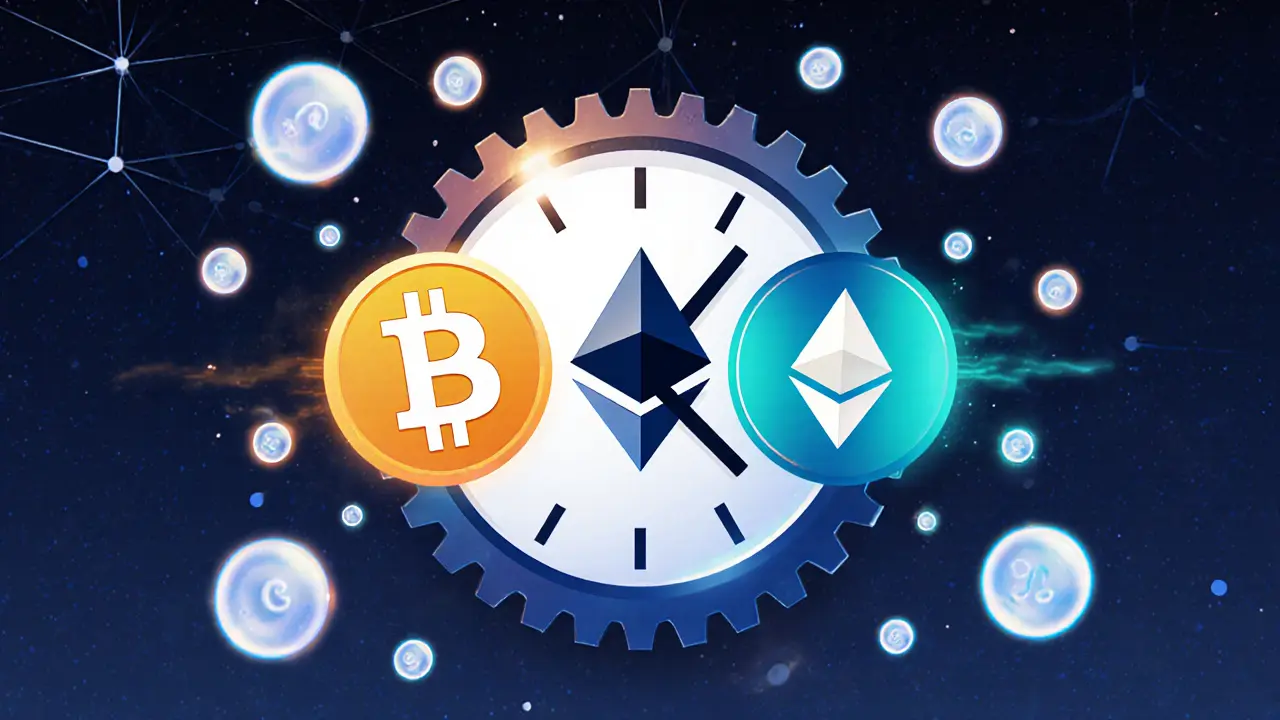Blockchain Confirmation Speed: How Fast Do Transactions Really Settle?
When you send crypto, blockchain confirmation speed, how quickly a transaction gets verified and added to the public ledger isn’t just a technical detail—it’s the difference between getting your airdrop on time or missing out entirely. It’s why your Binance Liquid Swap trade finishes in 3 seconds but your old Ethereum transfer takes 12 minutes. This isn’t random. It’s built into the network’s design.
Not all blockchains work the same. Solana, a high-throughput blockchain known for near-instant settlements confirms transactions in under a second, which is why projects like ELIXIR AI (ELXAI) and Itheum (ITHEUM) chose it—they need speed for real-time interactions. On the flip side, Bitcoin, a slower but ultra-secure blockchain takes 10 minutes per block, and you often wait 6 blocks (about an hour) to feel safe. That’s fine for storing value, but useless if you’re trying to claim a time-sensitive airdrop or swap tokens on a DEX like KaiDex V3.
Then there’s the hidden layer: network congestion. Even fast chains like BSC or Polygon can slow down when everyone’s trading at once. That’s why Nigeria’s underground crypto economy thrived on P2P platforms—users avoided congested public chains entirely. And in places like Algeria or sanctioned countries, where access to exchanges is blocked, stablecoin transfers, often running on faster blockchains like TRON or Ethereum L2s become the lifeline. Confirmation speed isn’t just about tech—it’s about survival.
What you’re really looking for is transaction finality—not just confirmation, but certainty. Some chains say they’re fast, but if you can’t reverse a mistake or if the network forks often, speed means nothing. That’s why traders watch not just block times, but also the number of confirmations required by exchanges. Binance might require 12 confirmations on Bitcoin, but only 1 on Solana. That’s the real story behind the numbers.
Underneath all this are the tools people use to game the system: flash loan arbitrage, cross-chain bridges, and non-KYC exchanges like Nonkyc.io. They all depend on one thing: how fast the underlying blockchain moves. If you’re trading, holding, or just trying to get your crypto from point A to point B without waiting all day, understanding confirmation speed isn’t optional—it’s your first line of defense.
Below, you’ll find real-world examples of how this plays out—from the UAE’s tax-free crypto holders who rely on instant settlements, to Algerians trading in the dark, to everyday users who learned the hard way that a slow chain can cost them thousands. This isn’t theory. It’s what happens when money moves on code.
What Is Block Time in Blockchain? Speed, Security, and Real-World Impact
Block time determines how fast transactions confirm on a blockchain. Bitcoin takes 10 minutes per block for security; Ethereum uses 12 seconds for DeFi; Solana hits under a second but risks outages. Learn how block time affects speed, safety, and real-world use.
read more

